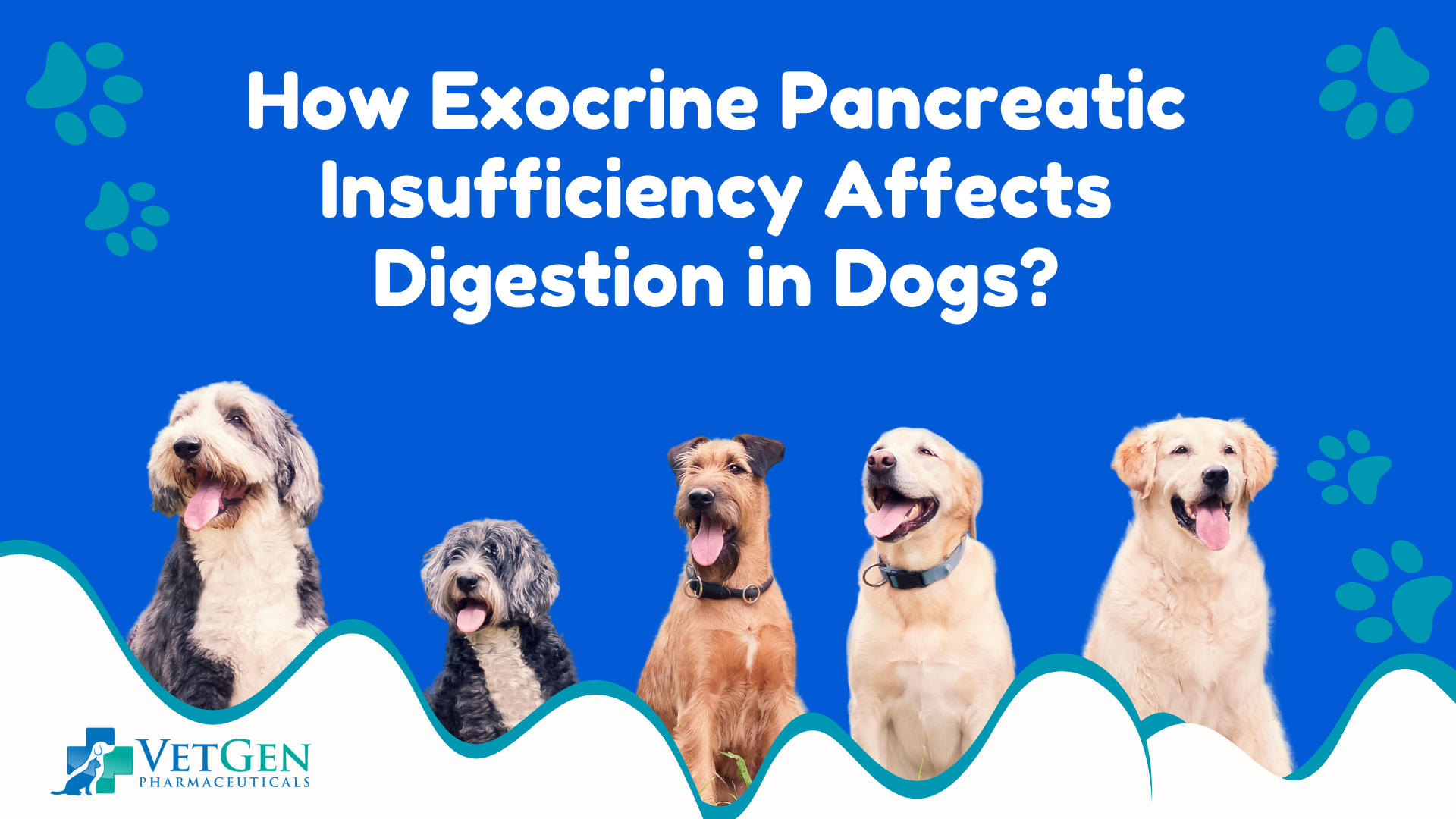Dog digestive health is a critical subject with a variety of niche elements to understand and be watchful for. If you are a dog owner, it is essential that you understand not just basic symptoms of indigestion, but also more complex issues such as EPI or Exocrine Pancreatic Insufficiency. What this condition exactly is, how it impacts the digestive health of dogs, and what are the symptoms that you must look out for are just some points of information that we cover in this comprehensive article.
What Is Exocrine Pancreatic Insufficiency
Exocrine pancreatic insufficiency refers to a physical condition in dogs, wherein their pancreas are unable to produce enough digestive enzyme, thereby impacting their digestive processes significantly. This function of producing the digestive enzyme is known as the exocrine function of the pancreas- one of the only two functions that this organ has to perform. The digestive enzymes also known by their specific names- protease, amylase, and lipase play a vital role in the digestive process by breaking down the fats, proteins, and the carbohydrates within the digestive system, thereby enabling efficient digestion.
If the pancreas fails to produce an ample amount of these enzymes, the body is unable to digest the food properly. This leads to the onset of more complex digestive and health issues because the body is unable to absorb the necessary nutrients. As such, it causes nutritional deficiency in the dog.
Symptoms of Exocrine Pancreatic Insufficiency
If your dog presents any of the following symptoms, then you must consult your vet to assess whether they are suffering from EPI or if there is some other underlying issue. Since several symptoms overlap with those associated with other ailments, medical diagnosis is critical before treatment can begin.
Unexplained Weight Loss: One of the key symptoms or identifiers of EPI is an unexplained weight loss, especially if it is happening despite an increase in appetite or regular appetite in the dog.
Diarrhea: If your dog is suffering from diarrhea and expelling greasy stools that are foul smelling and pale, it could be a sign of EPI.
Deterioration Of Muscle Mass: Since the dog is unable to absorb any nutrients in their body, they begin to lack protein, which hampers muscle health and leads to muscle loss or deterioration.
Fatigue Or Lethargy: In addition to muscle deterioration, the lack of absorption of nutrients also leaves the dogs with no energy, causing lethargy and fatigue in them.
Coat Dullness: Because the dogs lack ample nutrients to keep them healthy, it reflects in their fur as well, giving their coat a dull appearance and taking away any sheen.
Gas: Flatulence is yet another symptom of EPI. As the undigested food ferments in their stomachs, dogs experience uncontrollable flatulence.
Impact Of Exocrine Pancreatic Insufficiency On Digestion In Dogs
Exocrine pancreatic insufficiency poses a range of digestive issues in dogs, impacting their overall health due to a lack of nutrition in the body, and improper bowel movement. Here are some of the most common challenges dog’s face when they suffer from exocrine pancreatic insufficiency:
Insufficient Absorption Of Nutrients
The key issue related to EPI is malabsorption of nutrients due to the lack of enzymes that help in the systematic absorption of nutrients. Because there are not sufficient enzymes to digest the food, it passes through the digestive tract as it, without any absorption of any nutrients, leading the food to be excreted out whole.
As such, the level of critical nutrients like carbs, fats, and proteins will drop significantly in the dog’s body, even if they are consuming the optimal amount of food. The inability to digest any of it effectively leads them to a condition of starvation, leading to extreme weight loss and even muscle loss. This can also lead to increased appetite, and yet continue to contribute to their weight loss.
Fatty Bowels
Another key way in which the impact of EPI can be witnessed in dog’s digestion is the emergence of fatty bowel movement. This condition, also known as steatorrhea, is caused because of the fatty content in the dog’s food which goes undigested. The resulting stool is typically pale in color and extremely greasy as well as foul smelling. In addition to these characteristics, the stool can also appear to be more bulky and higher in volume, because of the fatty content in it. This issue can also lead to the dog experiencing dehydration.
Growth Of Harmful Bacteria
When the pancreas fails to produce ample enzymes in the dog’s system, the impact on their digestive processes also leads to the growth of harmful bacteria in their intestines. An overgrowth of these bacteria is encouraged by the existence of the undigested food, which is what these bacteria feed on and often rely on to multiply. When they feed on these food particles, they produce toxins which pose risks like irritating the intestinal lining in the dogs. As a result of this irritation of the lining, the dogs tend to experience diarrhea, which in turn complicates the digestive health even more significantly.
In addition to irritating the intestinal lining, these bacteria can also make the absorption of nutrients in the body more challenging, elongating the digestive problems being faced by the dog.
These impacts of exocrine pancreatic insufficiency can cause severe distress in dogs, impacting their overall health and well-being severely. If you notice any of the above symptoms or challenges in your dog, it is advised that you visit a vet promptly and get the issue checked. A concrete diagnosis can be useful in planning the treatment process.
Conclusion: Support of Healthy Digestion by Dining Healthily
Exocrine pancreatic insufficiency is a very serious issue which can impact any dog and cause severe malnutrition in dogs. The process of diagnosis can include several tests, and it is necessary to get the dog tested as soon as you suspect they may be suffering from EPI in order to prevent serious damage to the dog’s muscle and overall health. To protect your dog against EPI, it is essential to pay close attention to their symptoms, and get them treated promptly.






